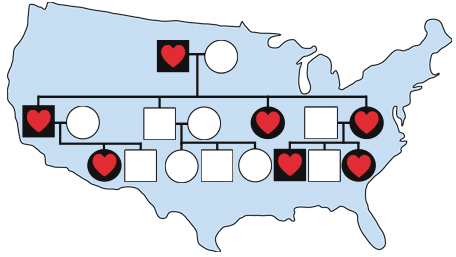Category:
Cascade Screening for Familial Hypercholesterolemia in the United States: Public Health Impact and Challenges

This post is a summary of our recently published paper in JAMA and outlines the public health impact and challenges for cascade screening for Familial Hypercholesterolemia (FH) in the United States. What is the public health impact of cascade screening for FH? FH is a dominantly-inherited genetic disorder affecting about 1 in 250 people and Read More >
Posted on byIs pharmacogenetic-guided treatment cost-effective? No one size fits all!

A recently published article by M. Verbelen and colleagues in The Pharmacogenomics Journal is called, “Cost-effectiveness of pharmacogenetic-guided treatment: are we there yet?” As Betteridge’s law of headlines states, any headline that ends in a question mark can be answered by the word No. Regrettably, although that article presents useful information, it ends up by Read More >
Posted on by 2 CommentsIntegrating Genomics into Public Health Surveillance: Ushering in a New Era of Precision Public Health

Public health surveillance has been defined as “the ongoing systematic collection, analysis, and interpretation of data, closely integrated with the dissemination of these data to the public health practitioners, clinicians, and policy makers responsible for preventing and controlling disease and injury.” Surveillance provides an essential scientific foundation for both clinical and public health practice. In Read More >
Posted on byWhole Genome Sequencing for All? The Quest for Evidence Continues

In 1999, Dr. Francis Collins predicted what the practice of genomic medicine in primary care may look like in 2010. He used a hypothetical patient named John, a 23-year-old man with high serum cholesterol. Based on his father’s history of early onset heart disease, John underwent a battery of genetic tests. He was found to Read More >
Posted on by 3 Comments

